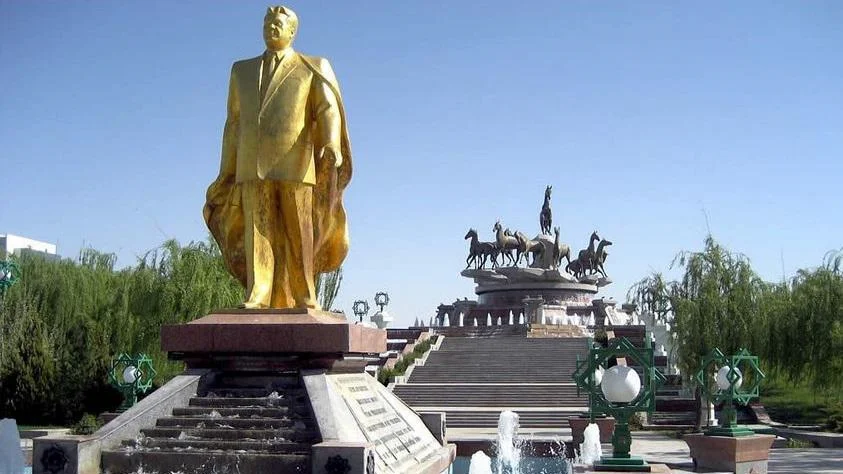Why is democracy dying?

The end of the Cold War in the early 1990s saw democracy surge, as former soviet autocracies transitioned to democratic systems and democracy spread in Africa and Latin America. But the past decade has seen a reverse in this trend, with authoritarianism and dictatorships making a comeback around the world.
Dr Brian Klaas of the Department of Government argues that Western powers are partly to blame for these developments, and offers a number of solutions to halt the global decline of democracy. In his new book The Despot’s Accomplice Dr Klaas draws on fieldwork from Madagascar, Tunisia, Belarus, Thailand, Côte d’Ivoire, and Zambia to provide a frontline account from the global struggle for democracy.
Dr Klaas identifies two kinds of non-democracies; straightforward dictatorships and autocracies; and ‘counterfeit democracies’, regimes that claim to be of the people, by the people, and for the people, but are actually none of the above.
According to Dr Klaas, non-democratic governments are tolerated by Washington, London and Brussels as they pursue short-term economic and political objectives, which he separates into two categories.
The first is the ‘Saudi Arabia effect’. Dr Klass said: "This is where Western governments are cosying up to despots for short-term, geo-strategic objectives. The understanding is that the dictatorial devil we know is better than the democratic devil we don’t."
The second is what Dr Klaas describes as the ‘Madagascar effect’. He said: "When there is a really low bar for what constitutes democracy, the West incentivises rulers to meet the minimum criteria. There are up to 100 countries that pretend to be democracies, and the West gives them a free pass."
According to Dr Klaas, labelling these regimes democratic devalues democracy in the eyes of the public: "If you live in Madagascar, and you think that what you have is democracy, why would you want it?"
But Dr Klaas also highlights the inherent weaknesses of authoritarianism, such as a complete lack of accountability for bad or dangerous policies. One example Dr Klaas cites is from Turkmenistan, where the former president Niyazov decreed that sick people would benefit from being surrounded by the opulent marble and gold surroundings of the capital Ashgabat, and closed Turkmenistan’s rural hospitals.
Dr Klaas said: "Thousands of people died in Turkmenistan because they didn’t have local access to healthcare. This coincided with Niyazov’s decision to claw back two years of state pensions from retired citizens. He used $12m of the reclaimed money to build a giant gold statue of himself in the centre of Ashgabat which rotates to always face the sun. In a genuine democracy, a leader could do these things, but they would probably get voted out."
The book offers a number of practical actions Western powers can take to make the world more democratic. One of these is a ‘democratic free trade zone’. Dr Klaas said: "Right now, we have are sticks but no carrots to help democracy. Rather than imposing sanctions, the West can give an economic incentive to rulers to democratise by dangling the prospect of inclusion in a powerful trade bloc."
"The proposed Trans-Pacific Partnership – which spans the rim of the Pacific Ocean – makes it clear that free trade zones no longer require shared land borders." Dr Klaas adds.
This idea could be modelled on the European Union’s economic trade bloc, whereby eastern European countries could only get preferential trade agreements if they democratised first. Dr Klaas says: "Because of the EU’s admission criteria, countries have democratised to gain economic benefits. This method worked to entice eastern European countries to democratise when the Soviet Union disintegrated. Now it’s time to use that model for countries around the world."
One of Dr Klaas’ more provocative proposals are offering ‘golden handcuffs’ to former leaders of non-democratic countries. Dr Klass said: "43 per cent of African leaders who left power since 1960 were killed, exiled or jailed. Election rigging and removing the political opposition by force is perfectly rational in countries, where losing power is mortally dangerous."
Dr Klaas said: "For mid-level offenders, as long as they pay back any money stolen from the state, Western states could provide them with a safe passage to build a new life somewhere relatively pleasant under house arrest."
"I’m not arguing in favour of golden handcuffs for war criminals; they should face trial in the International Criminal Court. But for some former leaders, the least damaging thing to do would be to get them out of the country peacefully to avoid retaliatory military coups or civil wars." Dr Klaas added.
Dr Klass cites the example of Cote D’Ivoire: "During the bloody civil wars in 2002 and 2010, thousands of people were killed and the country suffered huge economic losses. Each conflict could have been avoided. Golden handcuffs brings benefits to fragile situations; where the stakes are so high, sometimes the morally right thing to do is to hold your nose and make a deal to get former leaders out of power to give democracy a fighting chance."
Dr Klaas added: "It is in the West’s own best interests to use all the tools available to promote democracy over the long-term. Often, when non-democratic regimes are tolerated, supported or ignored, we are simply storing up problems that will eventually become even more dangerous."